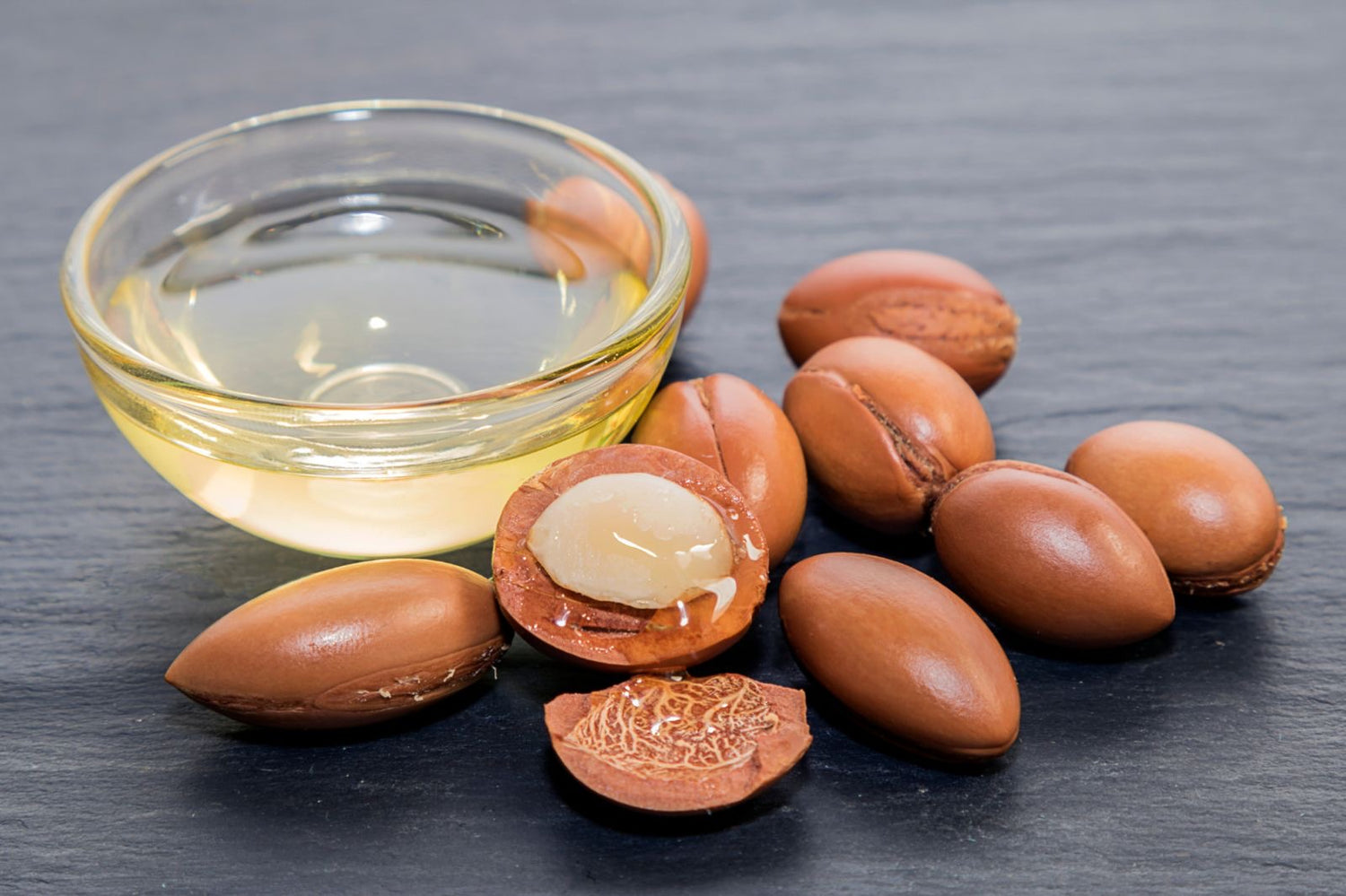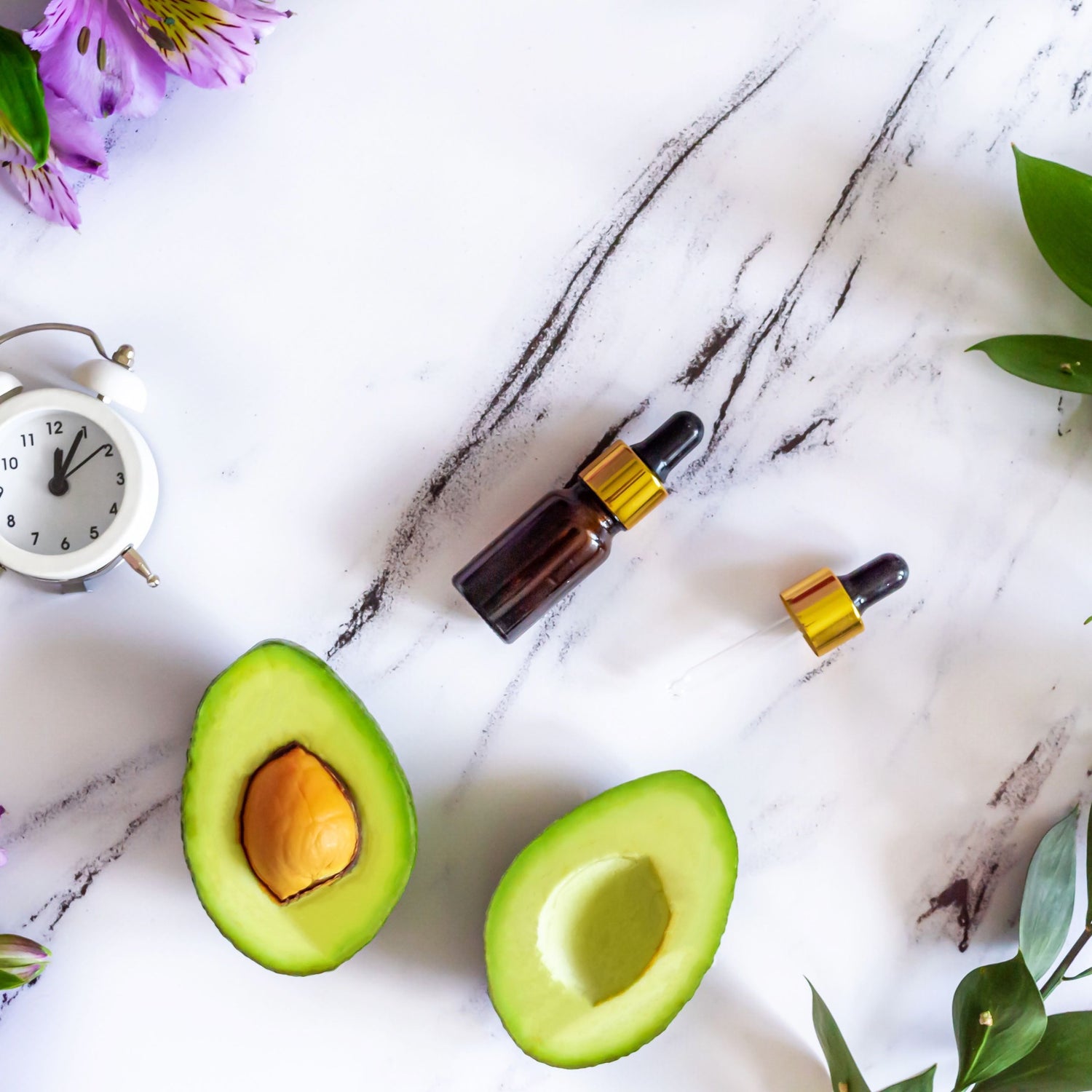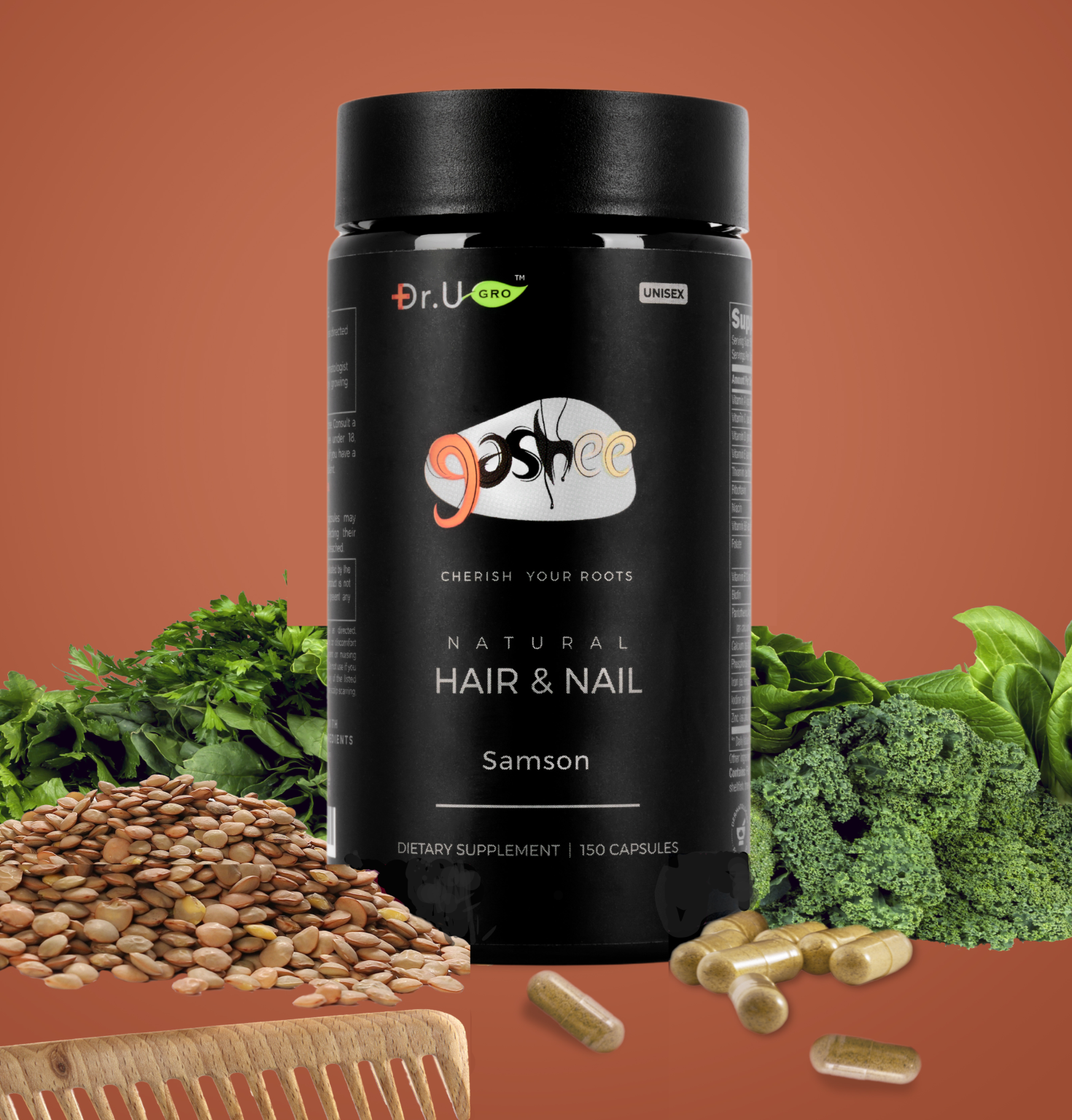Gotu Kola for Healthy Hair and Body
Gotu Kola is a beautiful plant that grows as a bright green plant with round leaves. It is valued in both Asian medicine (i.e., Indonesian and Chinese) and Ayurvedic medicine as a beneficial support for many areas of health. Now, scientists are discovering that Gotu Kola may even help promote better hair growth at the follicular level.
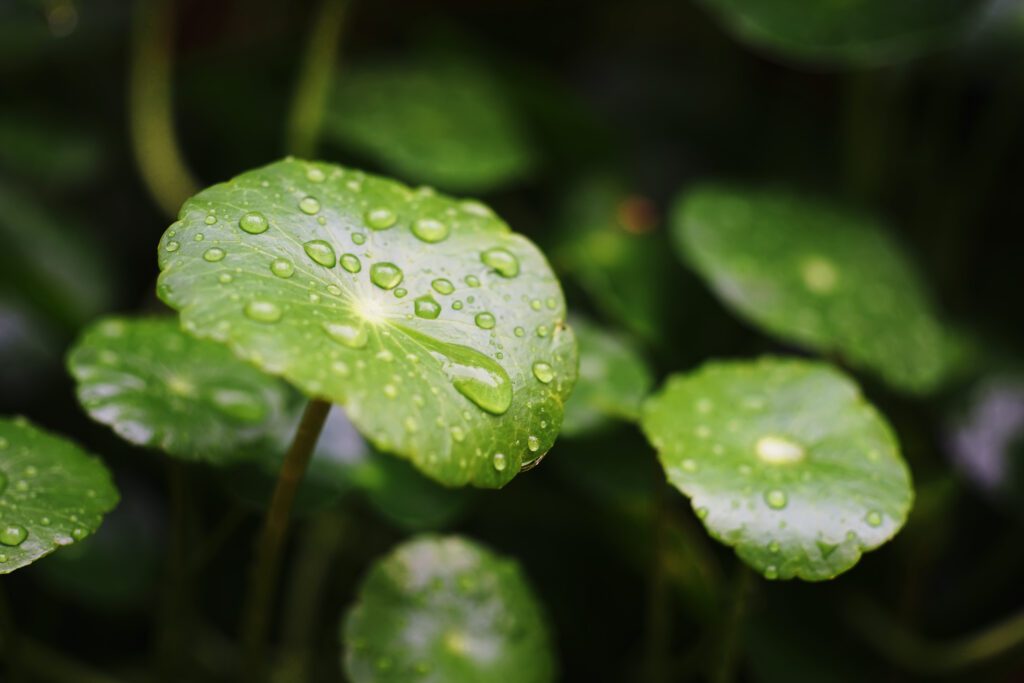
Gotu Kola has been referred to as the herb of longevity for thousands of years.
The Importance of Hair Follicle Health
Men and women around the world hope to find answers to improve the appearance of their hair and achieve better growth. However, this cannot be achieved by only addressing the hair strands. We need to start considering the health, functioning, and well-being of the small structures that produce our hair and the follicles themselves. The scalp environment matters. We must optimize beneficial nutrients while minimizing the presence of antagonistic and "unhealthy" compounds. Here are three vital areas we should pay more attention to for our hair follicles to have a better chance of thriving in the long term.
Reducing DHT and TGF-B
Our bodies produce two compounds that undermine the hair growth processes of our follicles.
- DHT, a byproduct of testosterone that promotes the miniaturization of the hair follicle in individuals with sensitive receptors for this androgen.
- TGF-B, a compound produced by our dermal papilla cells that causes our hair follicles to transition from the active growth anagen phase to the catagen transitional phase.
Reducing DHT and TGF-B helps improve the number of hair follicles in the anagen phase and hair growth rates.
Improving Blood Circulation to the Scalp
Our follicles depend on blood circulation to receive optimal oxygen and nutrients that support their health and longevity. Factors that promote better blood flow can enhance the functioning and vitality of our hair follicles.
Neutralizing Free Radicals
Free radicals are molecules created within our bodies. They act as scavengers that cause our cells and tissues to age faster. As such, they contribute to the deterioration of our hair follicles. These processes lead to what is known as oxidative damage. Scientists have discovered that patients with androgenetic alopecia show higher-than-normal markers of oxidative stress. A healthy scalp environment for our hair follicles needs to include molecules that do exactly the opposite. These are known as antioxidants, which neutralize free radical molecules and reduce the extent of oxidative damage.
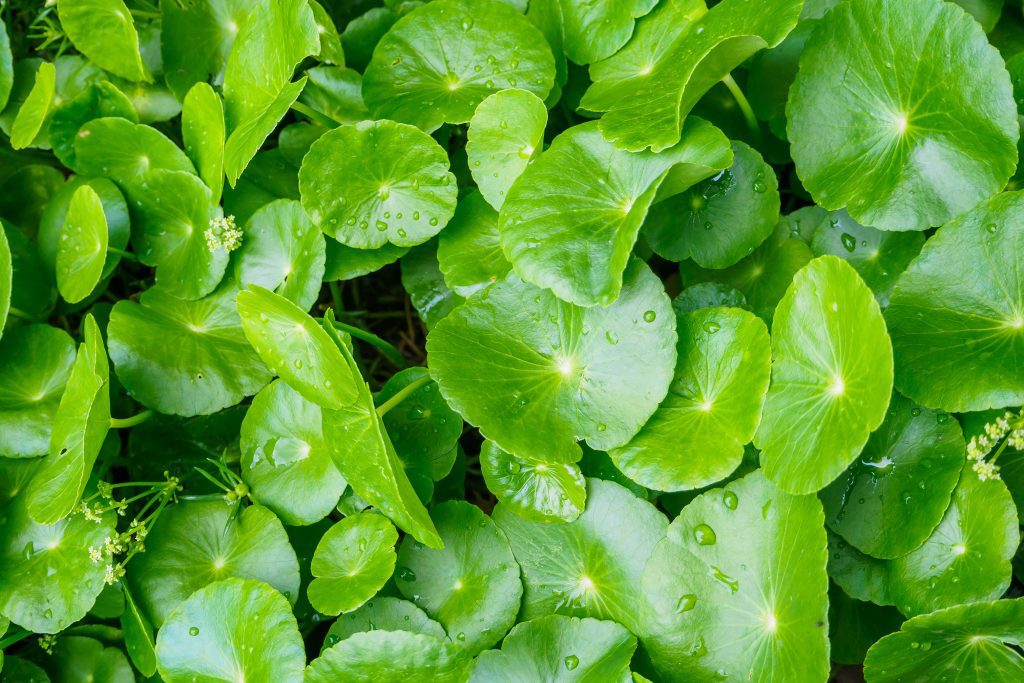
Also known as Centella Asiatica. Gotu Kola benefits many areas of health, including our hair follicles.
Gotu Kola for a Healthier Body and Hair
Commonly known as the "herb of longevity," Gotu Kola (Centella Asiatica or Asiatic Pennywort) has been used in both recipes and ancient medicinal remedies. Even today, it is used to benefit many areas of health due to the presence of saponins and triterpenoids. Its powerful antioxidant properties can serve as neuroprotective agents to improve conditions like Alzheimer’s disease. Scientists have observed the antioxidant effects of Gotu Kola in mouse models. They achieved this first by inducing oxidative damage in brain regions. After treating these areas with Gotu Kola, they noted that oxidative stress had been completely neutralized [1]. In another study, scientists noted that its Centella Asiatica extract resolved existing oxidative damage and increased the body's own production of glutathione and catalase [2]. Glutathione acts as an antioxidant that combats free radicals. And catalase is an enzyme that protects our cells from oxidative stress. The researchers created amyloid plaques in an Alzheimer’s study to replicate this brain condition, using a "high load of beta-amyloid." The treatment with Gotu Kola/Centella Asiatica extract actually worked to reduce plaque formation and even prevent the production of new plaques in the brain [3]
Why Consider Gotu Kola for Our Hair?
The antioxidant properties of Gotu Kola can benefit many areas of our body. This, of course, includes our hair follicles, which are also subjected to the ravages of oxidative stress. Researchers studied individuals suffering from androgenetic alopecia and found that they have much more severe free radical damage than average [4]. With its ability to neutralize free radicals, Gotu Kola may help improve and manage the symptoms of hair loss from common genetic baldness.
Gotu Kola and Dermal Papilla Cells
A notable study showed that Gotu Kola increased the gene expression of hair growth proteins in dermal papilla cells [5]. The dermal papilla cells are located at the base of our hair follicles, producing the growth of our hair. The small dermal papilla cells have been associated with hair loss. Additionally, this same group of researchers also found that Centella Asiatica improves wound healing through the production of new collagen. The formation of this protein fiber is necessary to create new hair follicles.
Gotu Kola as an Anti-Inflammatory Agent
In a well-received scientific review, researchers attributed the widely utilized therapeutic properties of Gotu Kola to several mechanisms in the body, including its anti-inflammatory role [6]. While hair loss is often attributed to factors such as DHT and nutrition, most people do not realize that inflammation is also a significant contributor. Not all immune systems are equally proficient at differentiating between our own cells and tissues versus an external threat (e.g., microbes, other substances, etc.). Therefore, inflammatory processes can damage our hair follicles and their ability to produce new hair. Hair loss may result. The anti-inflammatory capabilities of Gotu Kola may help protect hair follicles against hair loss that can result from inflammation.
The Antioxidant Effects of Gotu Kola
Researchers have found that Gotu Kola is a potent source of antioxidant compounds [7]. Scientists believe this is due to the high concentrations of phenolic compounds, such as flavonoids. These bioactives may even be used as templates to create new medications and serve as antioxidant raw materials to benefit humans.
Topical and Oral Uses of Gotu Kola
With the incredible healing capabilities of Gotu Kola, it is no surprise that its extracts are now being used as ingredients in health and beauty products. Topical preparations of this herb offer a more direct route to the skin and hair follicles. Some men and women may prefer this as a better alternative compared to oral ingestion. On the other hand, however, oral supplementation offers the advantage of holistically affecting and benefiting our system as a whole, including multiple targets.
Does Gotu Kola Have Side Effects?
As a natural herb, Gotu Kola is generally considered safe. However, when taken orally on a continuous basis, individuals should consider a possible limit restriction of about 12 months. Since Gotu Kola exerts cellular changes within our bodies, it should be considered with caution comparable to medications. We still need to consider the potential for unwanted side effects with care. Some examples include:
- nausea
- stomach discomfort
- liver problems
Topical Gotu Kola is also considered safe. However, it may cause itching and redness on the skin in certain individuals or when used excessively, especially after continuous use exceeding 10 weeks.
Frequently Asked Questions - Gotu Kola for Hair and Body
Are there toxic effects associated with Gotu Kola for hair loss and overall health? If so, what are they?
Although Gotu Kola is a natural herb, it still has the potential to cause side effects, like any other medicinal product. Examples include nausea, stomach discomfort, drowsiness, photosensitivity, hypercholesterolemia, and contact dermatitis. It is always best to consult your physician to guide you on taking any nutritional supplement.
What benefits does Gotu Kola offer to individuals looking to take supplements?
Gotu Kola supplements are available on the market to help individuals achieve a general state of well-being. The herb supports a wide range of health areas, such as blood circulation, mood, and wound healing.
Does Gotu Kola really work for hair growth?
In addition to the research discussed above, further studies are needed to better understand the connection between Gotu Kola and hair growth. Based on experimental findings, it is safe to say that Gotu Kola may help protect our hair follicles from accelerated aging, regulate gene expression so our bodies can produce more hair-inducing compounds, and even promote the formation of new hair follicles.
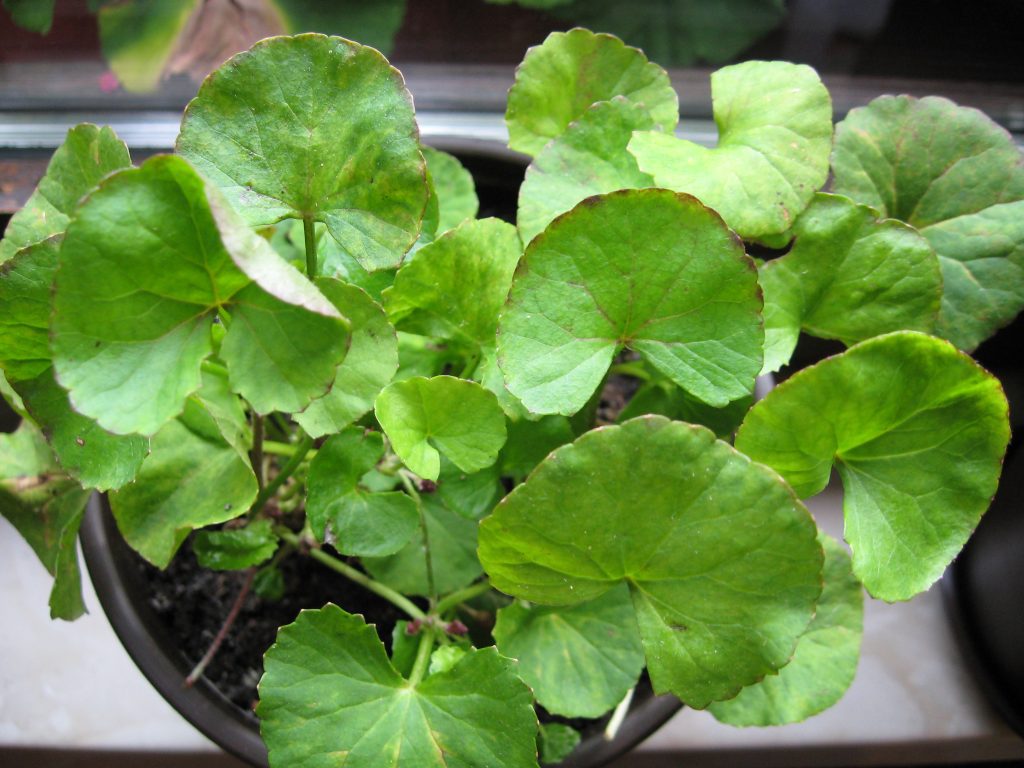
Gotu Kola is also known as Asiatic, "the herb of longevity," Asiatic pennywort, and Centella Asiatica. This botanical has much to offer for hair and health. (Photo: Wikimedia Commons)
An Incredible DIY Gotu Kola Dish That Will Revitalize Your Mind and Body
In Sri Lanka, a country often referred to as the "pearl of the Indian Ocean," a traditional and colorful salad dish known as Sambola is prepared using chopped Gotu Kola instead of lettuce or spinach. It is typically made with:
- rice
- curry
- shallot
- coconut
- garlic
- tomato
- ginger
- lemon juice
In addition to salads, Gotu Kola leaves, which are both tasty and pleasing to the eye, can also be used for:
- tea infusions
- side dishes
- green smoothies
The experience of preparing Sambola and other Gotu Kola recipes is a great way to bring the beauty and legend of this exotic herb into your kitchen.
Gotu Kola in Beauty Products
Due to its high concentration of natural plant-based antioxidant compounds, more and more beauty brands are including Gotu Kola in their ingredient formulations. Here are just a few examples.
Coola - a hair spray and scalp treatment
- formulated to repair dry and damaged hair
- protects strands from damage caused by UV rays
- preserves color-treated hair
Biossance Detoxifying Squalane and Tea Tree Mask
- recipient of the "Clean at Sephora" badge
- hydrates the face while removing impurities
- designed for those concerned with imperfections, redness, and pores
Dr.UGro Gashee Hair Lotion, Pomade, and Oral Supplements
- neutralizes free radicals for healthier hair follicles
- nourishes hair and scalp environment to enhance hair growth and quality
- hydrates hair strands
- supports healthier hair production processes
Overall Safety Ratings of Gotu Kola
Gotu Kola has received the highest possible safety rating of 1 from the EWG (Environmental Working Group). This natural ingredient has also been assigned a bright green risk factor rating, the lowest risk category in its color-coded scale, with red being the highest, yellow (high), and light green (low). While it is generally considered safe, Gotu Kola can cause unwanted side effects when taken orally or applied topically to the skin. According to WebMD, Gotu Kola is "possibly safe" for most men and women when ingested orally for up to 12 months. Some individuals, however, may experience stomach issues, nausea, and liver problems. The site also considers it "possibly safe" when applied topically for up to 10 months for most people. Although side effects are rare, Gotu Kola may cause redness and itching on the skin.
Contraindications
Gotu Kola is contraindicated for individuals who meet the following health criteria:
- under 18 years of age
- have a history of skin cancer, hepatitis, or other liver disease
- are currently pregnant or breastfeeding
As with any supplement, it is always best to seek advice and recommendations from your physician, who can make specific recommendations for your personal health profile.
Gotu Kola for Your Hair and Health
Gotu Kola is a plant-based ingredient that is effective for both topical [8] and oral intake. Its whole plant extract contains components that benefit our bodies and hair follicles in multiple areas. As a potent antioxidant, it has been shown to neutralize oxidative stress. It also works to counteract inflammatory processes that compromise the health of our follicles. And finally, scientists are excited to learn about its potential to regulate desired gene expression, supporting both our hair and overall well-being.
References
- George K Shinomol, Muralidhara, Neuroprotective prophylactic property of Centella asiatica against oxidative stress induced by 3-nitropropionic acid and mitochondrial dysfunction in brain regions of prepubescent mice, Neurotoxicology, 2008 Nov;29(6):948-57
- Protective effects of Centella Asiatica leaf extract on dimethylnitrosamine induced liver injury in rats, Mol. Med Rep, 2016 Nov;14(5):4521-4528
- Soumyanath, Amala & Zhong et al. (2012). Centella Asiatica extract improves behavioral deficits in a mouse model of Alzheimer's disease: investigation of a possible mechanism of action. International Journal of Alzheimer's disease. 2012. 381974. 10.1155/2012/381974.
- Prie, B E et al. “Oxidative stress in androgenetic alopecia.” Journal of medicine and life vol. 9,1 (2016): 79-83.
- Yeong Min Choi, Sungkwan An et al. The titrated extract of Centella Asiatica increases hair inductive property through the inhibition of the STAT signaling pathway in human dermal papilla cells cultured in three-dimensional spheroids, Biosci Biotechnol Biochem, 2017 Dec;81(12):2323-2329
- Gohil, Kashmira J et al. “Pharmacological review on Centella Asiatica: a potential herbal remedy.” Indian journal of pharmaceutical sciences vol. 72,5 (2010): 546-56.
- Pittella, Frederico et al. “Antioxidant and cytotoxic activities of Centella Asiatica (L) Urb.” International journal of molecular sciences vol. 10,9 3713-21. 26 Aug. 2009
- Umar S. and Carter M. "Multimodal strategy for the treatment of hair loss using a new topical phytoactive formulation," Case Reports in Dermatological Medicine / 2021


